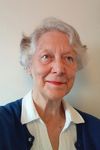Art
As Erica Jong once said in an interview with Karen Burke, “You must view yourself as a perpetual beginner, someone still searching for your own kind of truth... You are always naked when you start writing; you are always as if you had never written anything before.”
No doubt experimental poets especially would agree. After all, experiment by definition involves pushing into the unknown, venturing the untried. Such a confrontation with the new is a great equalizer. No prior standards, no agreed-upon rules exist. The writer’s task is to discover (or invent) them as s/he goes along, like children very much by the fortuitous accidents of play.
When experiment leaps outside the mainstream, whether the results will endure is not the concern. The work needs no other justification than itself—“art for art” in a contemporary mode. And if intended content is in the way, time to discard or redefine it in terms of fresh possibilities. From experiment we learn how to expand or loosen up when staleness or predictability bogs down our creative work. Getting there is the way to find the destination.
